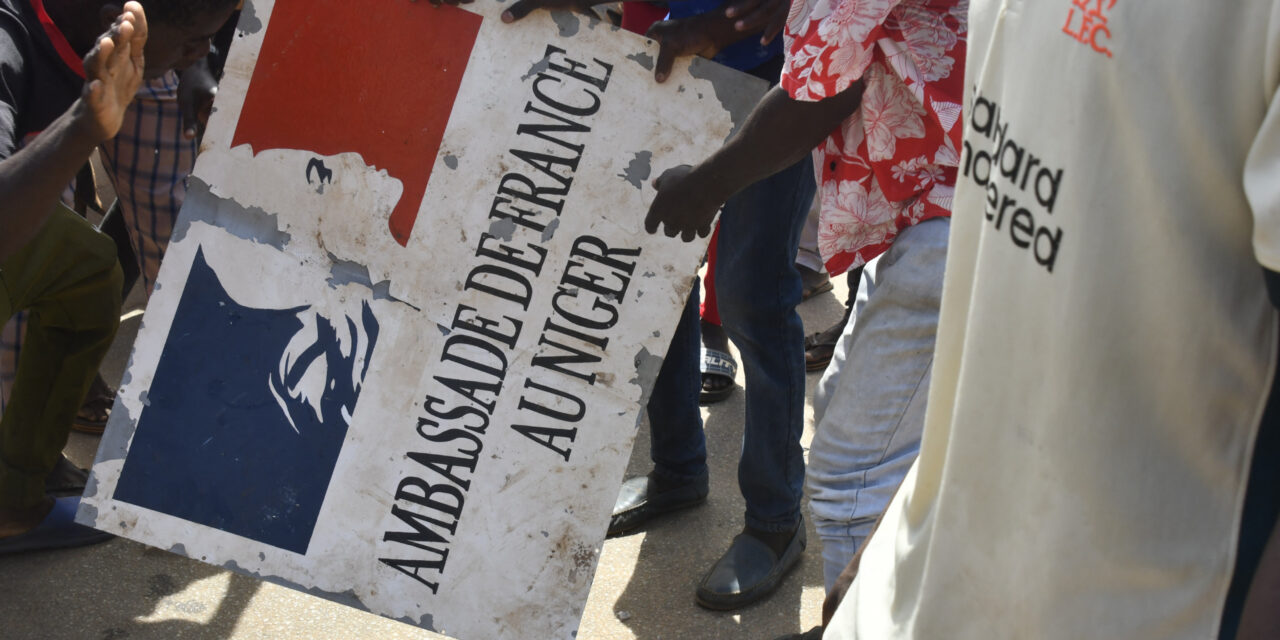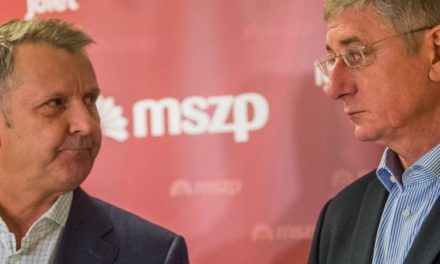The former French colony is a key ally of the West in the fight against terrorism in the region. In Brussels and Washington, they fear that after last Wednesday's coup, Niger (also) will come under Russian influence.
A week after the violent removal of the democratically elected president of Niger, the United States of America is reluctant to call what happened a military coup. The explanation is to be found in geopolitical games. After the "coup" classification, Washington could no longer provide military aid to the African country of 26 million inhabitants, which is the West's only real ally in the region in the fight against Islamist extremism, reports Politico.
It received little publicity, but the soldiers of the army that ousted President Mohamed Bazoum from power were trained in recent years, among other things, with subsidies from the European Union. The EU allocated 503 million euros from the budget for the period between 2021 and 2024 for Niger.
Coup zone
The countries and inhabitants of the Sahel belt, which is located south of the Sahara and is also called the hunger belt, are simultaneously affected by the food and climate crisis, as well as by Islamist terrorism. The latter could not be curbed even with the military support of the West, the extremists made millions homeless with their attacks on civilians and civilian infrastructure.
Observers blame the lack of military success against the Islamists for the back-to-back coups in the region. In the last three years, there have been six successful military takeovers in the region. Niger, on the other hand, seemed to be out of line so far.
Immediately after two successive military coups in neighboring Mali, Niger underwent a peaceful transition of power in December 2020 – the first since the former French colony gained independence in 1960. It is true that the outgoing president himself nominated the new leader as his successor, but Mohamed Bazoum was finally elected, and the outgoing Mahamadou Issoufou did not act like his Ivorian or Guinean counterpart, who "assumed" a third presidential mandate by supplementing the constitution.
Bazoum survived a coup attempt in March 2021, which observers explained by the fact that, under his leadership, Niger - unlike its neighbors - was able to show success in the fight against Islamist groups. However, analysts warned even then that the subsequent arrests, especially among high-ranking officers, had fueled hostility within the army. According to some reports, President Bazoum also wanted to oust the former head of the presidential guard, General Abdourahamane Tchiani – who eventually took his place – and this, if not precipitated it, at least hastened the coup.
Unclear Russian interest
In recent years, European countries have faced growing resentment from African (and South American) countries. In the Sahel, the main target is France, accused of neo-colonialism, which since 2013 has conducted extensive – and for a long time seemed to be successful – military operations against extremist armed groups in six countries of the region. Then President Emmanuel Macron was forced to withdraw French troops from Mali after the May 2021 military coup. The center of the Barkhane operation was moved to Niger.
Already then, it emerged that the lack of cooperation on the part of Mali's new leadership and the whipping up of anti-French sentiments is only partially due to the failure of the Western military intervention, and can be explained at least as much by the negative propaganda of the Wagner group active in the region. When the putschists in Mali gave the way to the Europeans, they also opened the gates wide for the Russians.
In Brussels and Washington, they fear that after last Wednesday's coup, Niger (also) will come under Russian influence. The French station about 1,500 soldiers there, the Americans about 1,000. The latter mainly maintain bases for drones that play a key role in American operations in the region.
According to estimates, Wagner stationed around five thousand soldiers in different countries in Africa this spring. It is still unclear what role Yevgeny Prigozhin's private army, which had (at least apparently) fallen out of favor in Moscow in the meantime, played in the events in Niger. According to some analysts, Moscow is only trying to create the appearance that it is moving the strings from the background, when in fact it was only an outside observer of the coup. This does not mean that the Russians cannot use the new situation to their advantage, the Wagner Group has a lot of experience in ensnaring corrupt leaders. Until now, the group's activities in Africa have mainly consisted of "serving" autocrats, from armed insurance to propaganda to the supervision of lucrative mining concessions, while a substantial portion of their revenues were usually trickled back to local elites.
It will be difficult to "sort out"
In addition to immediate sanctions, the Economic Community of West African States (ECOWAS) gave a one-week ultimatum to Niger's putschists at its extraordinary meeting in Abuja on Sunday, with the possibility of using force if President Mohammed Bazoum is not restored to power. However, according to observers, cashing in on the threat is extremely difficult, if not impossible. The 15-member group of countries has so far only Gambia intervened in 2017 – with success, by the way – but Niger is a much larger country with a well-equipped army. In addition, the "threateners" themselves face security problems back home.
The crisis in Niger could destabilize the whole of West Africa. Neighboring Mali and Burkina Faso not only share with Niger the fact that a military junta rules there too - both countries have also had two coups each in the last couple of years - but they also share a common antipathy towards the French and the presence of the Wagner group.
On the other hand, a military intervention in Niger would almost certainly lead to a widening of the conflict, after the leaders of Mali and Burkina Faso announced that such a move would be considered a declaration of war against their country.
European interests
One of the goals of the support provided to the countries of the Sahel region and the fight against Islamist armed groups is to curb illegal migration to the EU, in addition to preventing destabilization of the region. In addition, Niger is Europe's second largest supplier of uranium, after Kazakhstan.
The importance of nuclear fuel has increased considerably in the last few years thanks to the climate protection program announced by the European Union. Last February's invasion of Ukraine further increased the importance of the French-operated Niger uranium mines, as Europe tries to speed up its separation from Russian energy carriers.
Featured image: AFP












